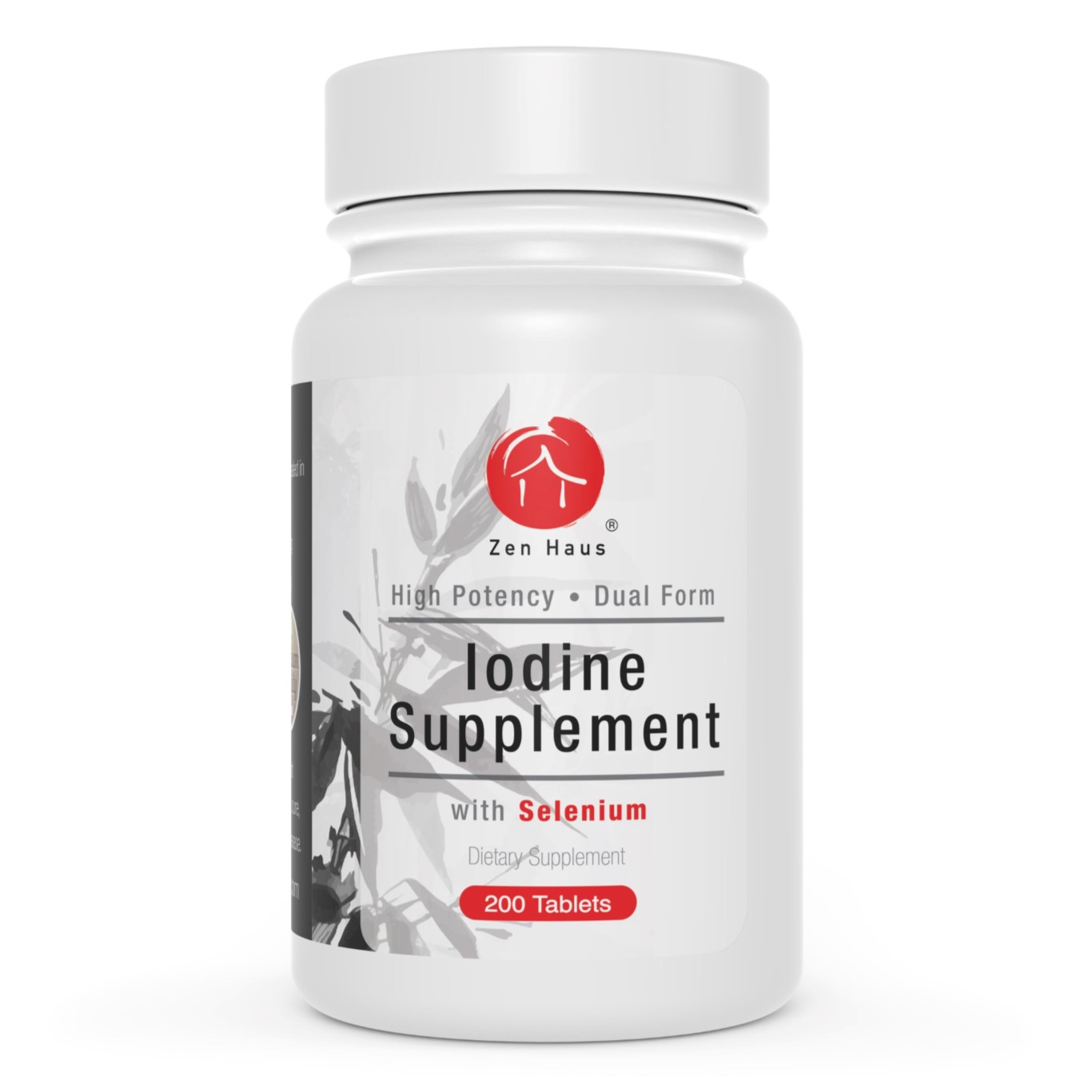Prostate health is a critical yet often overlooked aspect of men’s wellness, with many men avoiding medical care due to cultural pressures, fear and discomfort. We believe understanding these barriers and exploring science-backed solutions can empower men to take charge of their health. Here we examine why men avoid prostate healthcare, highlights the promising role of iodine in supporting prostate function, and offers practical dietary and lifestyle tips to promote long-term wellness, encouraging proactive steps for the men you care about.

Why Men Avoid Seeking Prostate Healthcare: Understanding Key Barriers
Many men hesitate to visit doctors or address prostate concerns, a trend that can lead to delayed diagnoses and poorer outcomes. Studies show men are 20-30% less likely to seek routine medical care compared to women, often influenced by cultural and psychological factors.
Cultural Expectations of Masculinity
Societal norms often emphasize strength and self-reliance, discouraging men from seeking medical help for prostate concerns. Expectations to “tough it out” can frame addressing health issues as a sign of weakness. This mindset may delay care for prostate-related conditions, increasing the risk of complications. It may also result in more costly treatments that take longer.
Fear of Serious Diagnoses
Anxiety about receiving a serious prostate-related diagnosis, such as prostate cancer, can lead men to avoid doctor visits. By ignoring symptoms like urinary difficulties, they may hope to sidestep confronting alarming news, which can result in conditions being detected at later, less treatable stages.
Discomfort with Medical Procedures
Fear of invasive exams, such as prostate screenings or digital rectal exams, or unease in clinical settings—sometimes called “white coat syndrome”—can deter men from seeking care. Embarrassment or discomfort about these procedures often leads to missed opportunities for early detection and prevention of prostate issues.
By recognizing these barriers, we can better understand why men avoid prostate healthcare and take steps to make relevant information and care more accessible to the men you care about in your lives. We support this effort by discussing how iodine, along with dietary and lifestyle changes, can promote prostate health, empowering men to take control of their well-being.
Iodine: Key Nutrient for A Healthy Prostate
Prostate health is a major concern for many men, and iodine supplementation may help keep the prostate in good shape. Research suggests iodine can prevent prostate enlargement, reduce swelling, and lower cancer risk. Below, these benefits are listed in simple terms with supporting studies making them easy to understand.
Key Benefits of Iodine for Prostate Health
Prevents Prostate Enlargement
Iodine may stop the prostate from getting too big, a condition called benign prostatic hyperplasia (BPH). When you read BPH think of swelling.
Evidence: In rat studies, iodine (2.5–25 mg) stopped testosterone from causing prostate growth and lowered harmful cell damage, working as well as some medicines.1 Another study in rats gave iodine with milk protein and found smaller prostates with fewer BPH signs.2 In men with early BPH, 5 mg/day of Lugol’s solution for 8 months lowered prostate-specific antigen (PSA) levels, improved urine flow, and reduced symptoms.3,4 PSA is a protein produced by the prostate, and high levels can signal prostate issues like BPH or cancer.
Reduces Prostate Swelling
Iodine can calm swelling in the prostate, which helps ease discomfort and related problems.
Evidence: In rats with swollen prostates, iodine in water reduced swelling and harmful proteins that cause inflammation, while boosting helpful ones5. In lab tests, iodine slowed prostate cancer cell growth and lowered inflammation5.
Fights Prostate Cancer Growth
Iodine may slow down or stop prostate cancer cells and help the body fight them.
Evidence: Lab studies showed iodine entered prostate cancer cells and slowed their growth by causing cell death through a molecule called 6-iodolactone. 3,6 In mice with prostate cancer, iodine helped fight tumors.3 Countries like Japan, where people consume more iodine, have lower prostate cancer rates than the US or UK.4,7 Another US study also connected iodine levels to prostate cancer risk, but more research is needed.8
Protects as an Antioxidant
Iodine protects the prostate by fighting cell damage that can lead to prostate issues.
Evidence: In rat studies, iodine reduced harmful molecules that damage cells, acting like a strong antioxidant.1 It also turned on a pathway (Nrf2) that boosts protective enzymes.3 Iodine is 10–50 times stronger than some antioxidants, like vitamin C.1,4
Boosts Immune Defense
Iodine may help the immune system attack prostate cancer cells.
Evidence: In animal studies, iodine increased immune cells (like CD8+ cells) that fight tumors and activated pathways to improve the body’s cancer defenses.3
Iodine is a promising nutrient for keeping the prostate functioning well. It can help prevent prostate enlargement, reduce swelling, fight cancer cell growth, protect against cell damage, and support the immune system. These benefits, backed by studies, show iodine’s potential to improve prostate health. We are dedicated to sharing clear, science-based tips to support the men you care about. In the next section, we’ll provide simple dietary and lifestyle ideas, including safe ways to add iodine, to promote prostate health and encourage better wellness choices.
Dietary and Lifestyle Suggestions for Prostate Health
Building on the importance of overcoming barriers to prostate healthcare and the benefits of iodine, this section offers practical dietary and lifestyle tips to support the prostate. These suggestions are designed to be simple and accessible, empowering the men you care about to take charge of their well-being. Backed by science, these strategies focus on reducing inflammation, improving overall health, and addressing concerns like benign prostatic hyperplasia (BPH) and prostate cancer risk.
Dietary Suggestions for Prostate Health
Eat Prostate-Friendly Foods
Why It Helps: Certain nutrients can reduce inflammation and support prostate function, lowering the risk of BPH and cancer.
What to Do: Include foods rich in zinc (e.g., pumpkin seeds, shellfish), lycopene (e.g., tomatoes, watermelon), and omega-3 fatty acids (e.g., salmon, walnuts). These nutrients have been linked to better prostate function in studies. For example, lycopene from tomatoes may reduce prostate cancer risk by up to 20% in some observational studies.9
Tip: Add a handful of pumpkin seeds to salads or snack on them daily; include cooked tomatoes with dinner to boost lycopene intake.
Focus on a Balanced, Anti-Inflammatory Diet
Why It Helps: Chronic inflammation can worsen prostate issues like BPH and increase cancer risk. A diet low in processed foods and high in anti-inflammatory ingredients can help.
What to Do: Eat more fruits, vegetables, and whole grains while cutting back on red meat and sugary foods. Berries, leafy greens, and whole grains like quinoa reduce inflammation markers, which may support prostate health.10
Tip: Try a Mediterranean-style diet, which studies show can lower PSA levels and improve urinary symptoms in men with BPH.11
Lifestyle Changes for Prostate Health
Stay Active with Regular Exercise
Why It Helps: Exercise improves blood flow, reduces inflammation, and may lower BPH and prostate cancer risk. A study found men who exercise regularly (3–4 hours/week) have a 25% lower risk of severe BPH symptoms.12
What to Do: Aim for 30 minutes of moderate activity, like brisk walking, swimming, or cycling, most days of the week. Strength training can also help maintain healthy hormone levels. Sitting in a deep squat can also boost blood flow to the area.
Tip: Take a daily walk or join a local fitness group to stay consistent.
Manage Stress to Support Wellness
Why It Helps: Chronic stress increases inflammation and may worsen prostate symptoms. Research shows stress management can lower PSA levels and improve quality of life in men with prostate issues.13
What to Do: Practice stress-relief techniques like meditation, deep breathing, or yoga for 10–15 minutes daily. These can reduce stress hormones and inflammation.
Prioritize Regular Prostate Screenings
Why It Helps: Early detection of prostate issues, like BPH or cancer, improves outcomes. Regular screenings address barriers like fear of diagnosis or discomfort with procedures (e.g., PSA tests or digital rectal exams) by catching problems early.
What to Do: Schedule annual check-ups, including PSA tests and discussions with a healthcare provider about prostate health, especially after age 50.
Tip: Talk openly with your doctor to feel more comfortable and informed during screenings. Start the conversation then take things at a pace you are comfortable with.
Taking small steps with diet and lifestyle can make a big difference in prostate health. Eating foods rich in zinc, lycopene, and omega-3s, staying active, managing stress, and getting regular screenings can reduce inflammation, ease BPH symptoms, and lower cancer risk. These changes can help overcome barriers to prostate healthcare and promote long-term wellness.
Summary
Addressing prostate health starts with recognizing why men avoid care—cultural expectations of toughness, fear of serious diagnoses, and discomfort with procedures like PSA tests. Iodine offers potential benefits, such as preventing prostate enlargement, reducing swelling, fighting cancer cell growth, acting as an antioxidant, and boosting immune defenses. Complementing this, simple dietary choices like eating zinc- and lycopene-rich foods, along with lifestyle changes like regular exercise, stress management, and screenings, can reduce inflammation and lower risks of BPH and cancer. We are committed to sharing clear, practical tips to help the men in your life overcome barriers and prioritize their prostate health for a healthier future. We invite you to do the same.


